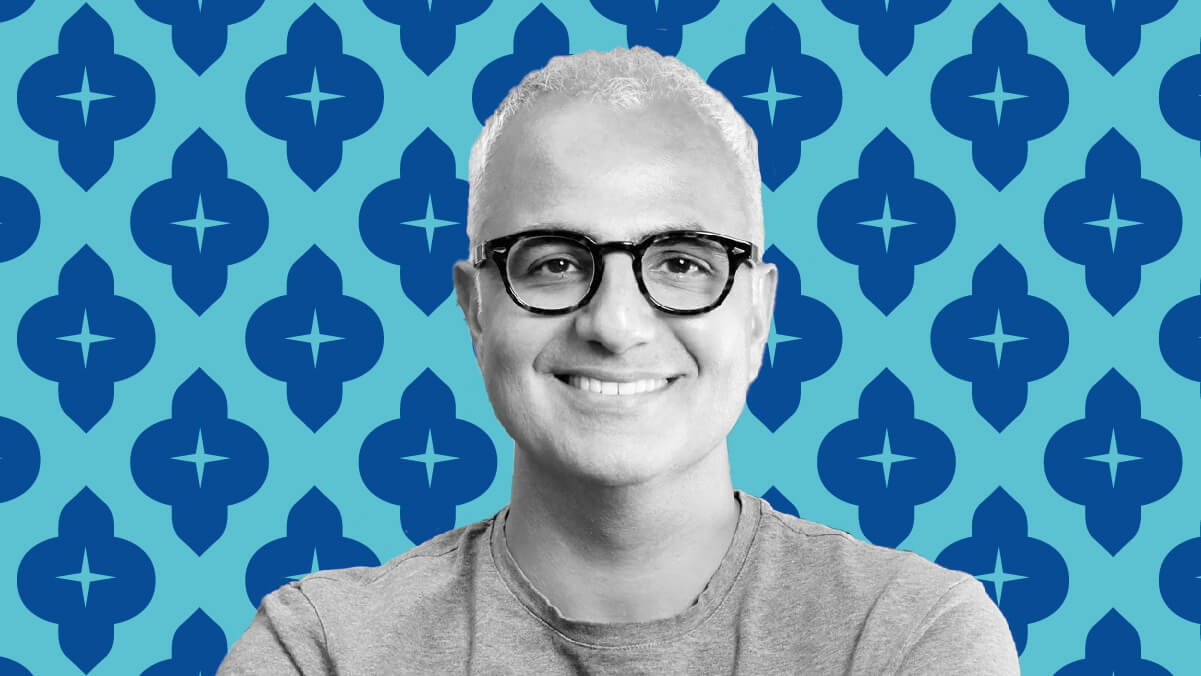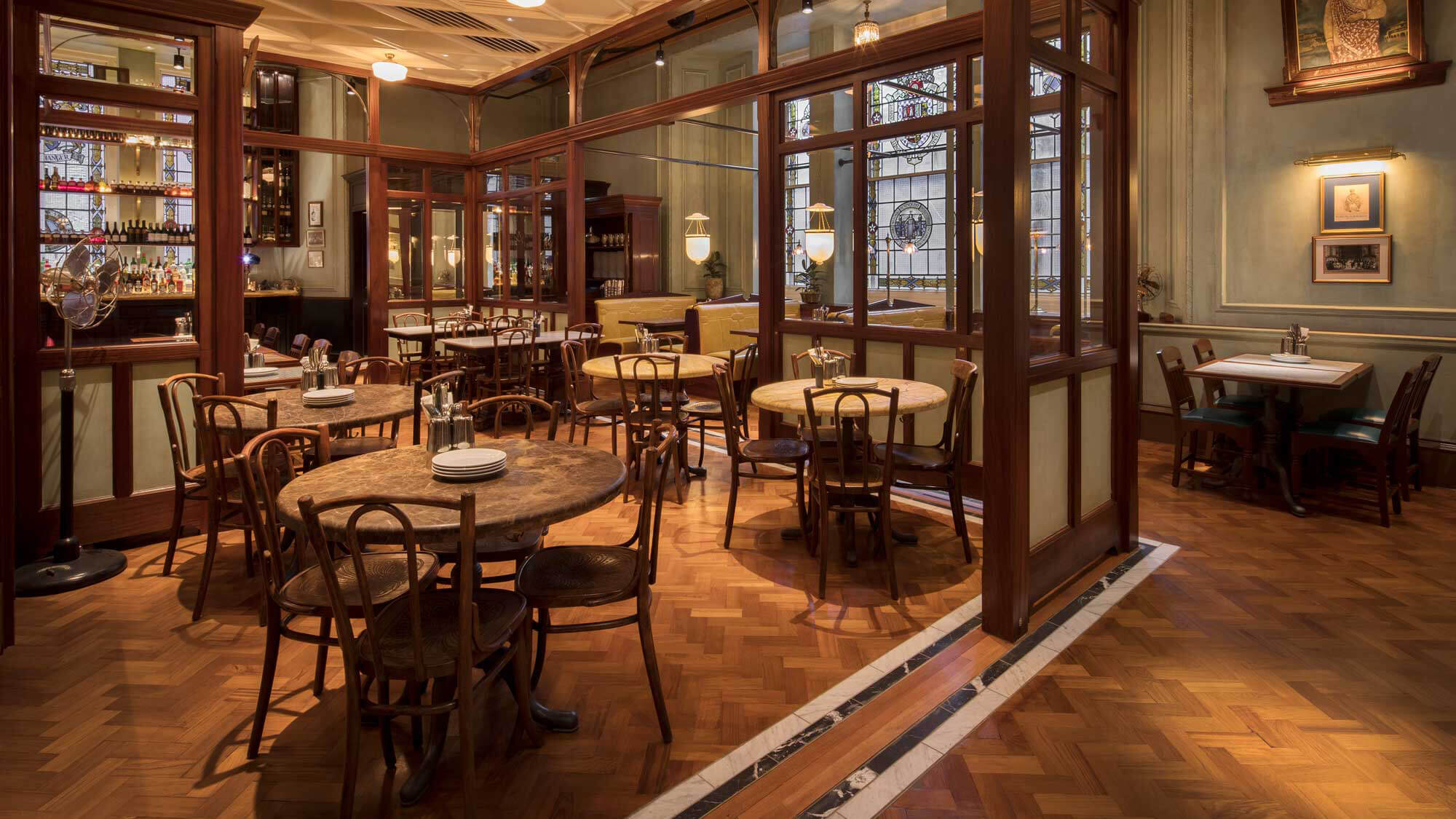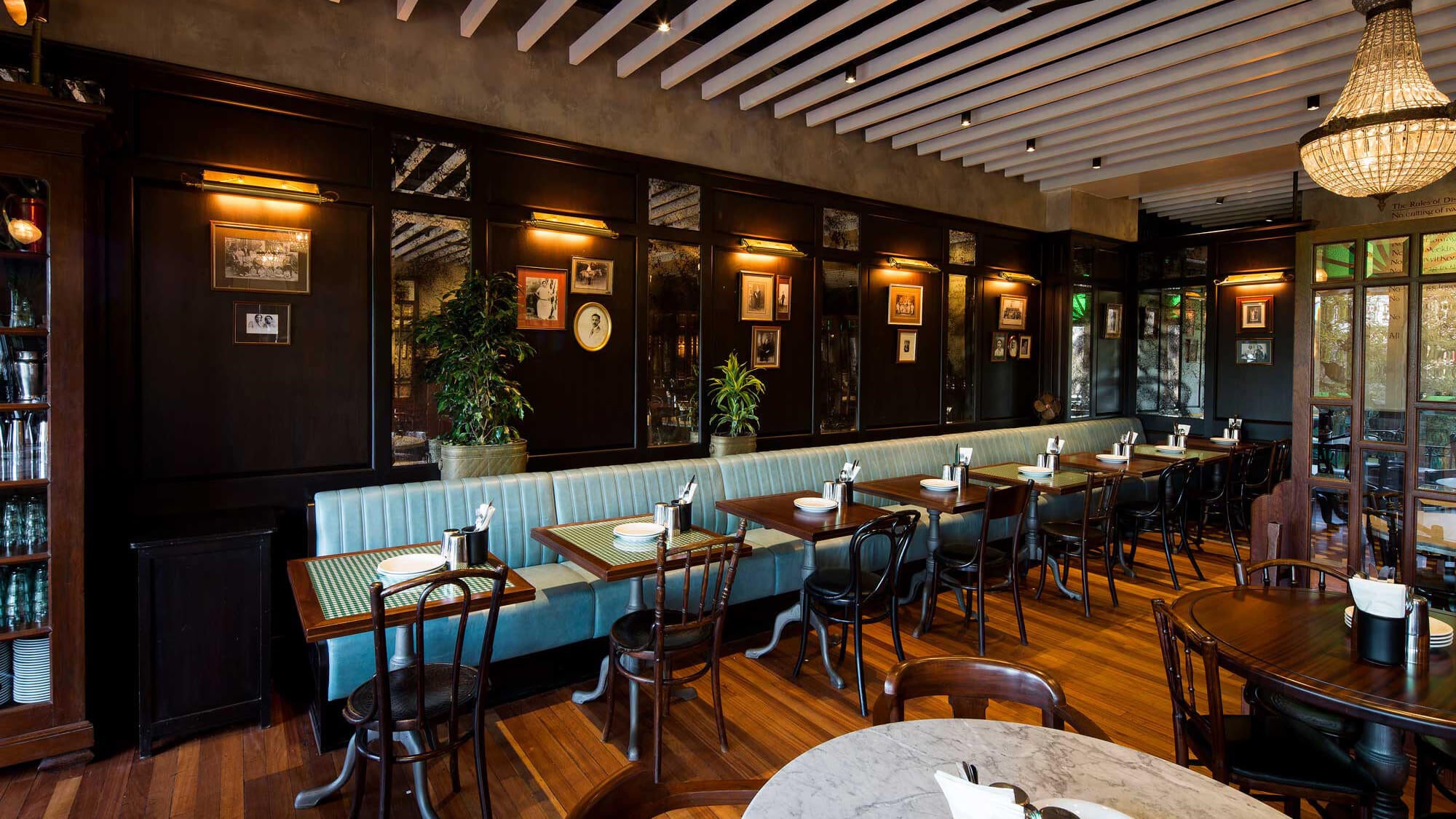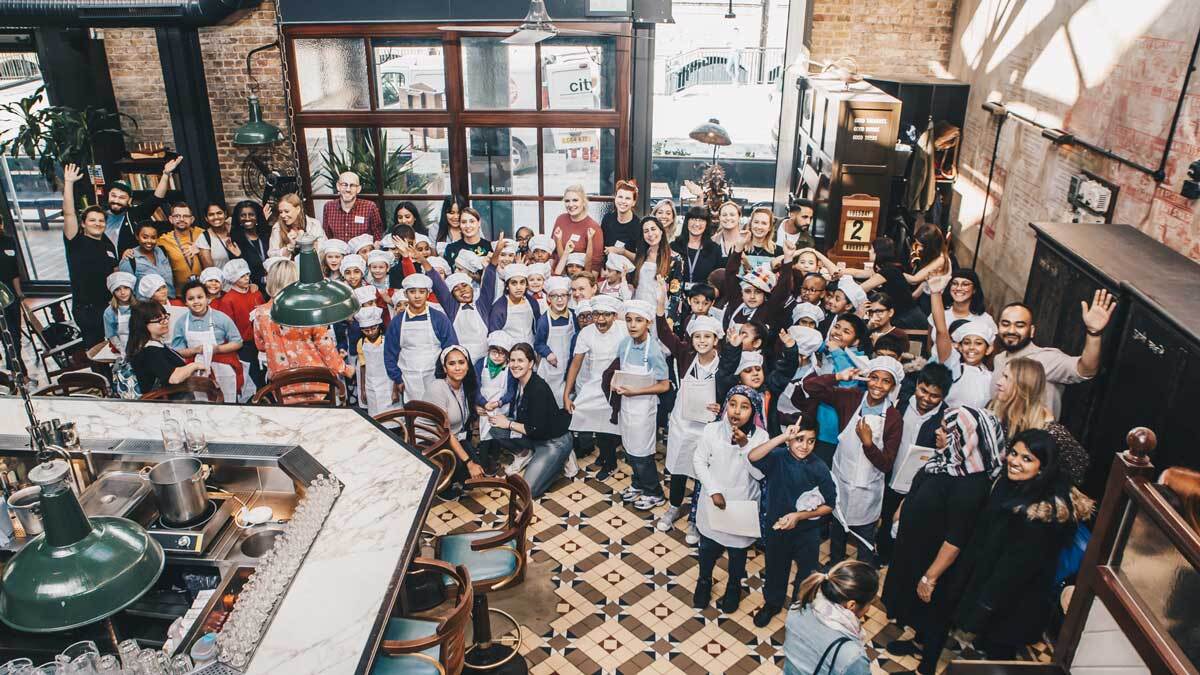
Dishoom, the Indian restaurant group which launched in 2010, has established itself as one of the UK’s top modern brands. With branches in London, Edinburgh, Manchester and Birmingham, and a Sunday Times best-selling cookbook, the group employs around 1,500 full-time staff whom CEO and co-founder Shamil Thakrar likes to think of as “one big extended family”.
Last year, Dishoom was named the fourth-best large company to work for in the UK, which was the highest placing of any hospitality business, as part of an annual listing compiled by the trade body Best Companies. Meanwhile, in recruitment site Glassdoor’s Employees’ Choice Awards, which collates survey responses on staff experience and engagement, Dishoom ranked 12th, again higher than any other hospitality business.
For Thakrar, who co-founded Dishoom with his cousin Kavi, having a happy workforce not only makes good business sense, but is true to the original vision of the group, which was to emulate the warm, welcoming atmosphere of Bombay’s famed Irani cafés of the 1960s.
“I don’t believe that you can have a happy customer without a happy team [of staff],” he says, over chai in Dishoom’s head office in Shoreditch, east London. “The Irani cafés were like a melting pot, cultural hubs even, where you’d get people from all walks of life sharing the same space. We might have multiple sites, but the thing that’s consistent is the way you’re greeted and treated. It should always be extremely well. We believe that for the customers and for our staff, too.”

Thakrar, who studied philosophy, politics and economics at the University of Oxford between 1990 and 1993, before gaining an MBA from Harvard Business School in 2001, is enthusiastic about promoting from within.
“We invest an awful lot of time in training and development. One of the advantages is that you can keep the culture very strong. You’ll have someone who has grown with the business, who knows the different aspects of it. I think that’s one of the things that helps us. When people look at us, they see a future. They see a career.”
What makes Dishoom a “great people proposition”, as Thakrar terms it, is a commitment to continuous development. The group, which serves an average of 60,000 customers every week, will open its ninth restaurant later this year, in London’s Canary Wharf, and Thakrar beams with pride as he tells Raconteur that the new general manager there started off as a waiter.
“Our philosophy is called Seva,” he says, “which is a Hindi word meaning selfless service. We ask staff to give the best of themselves, to give over their heart and their mind while they work for us. And we think that’s also our obligation to them while they’re here.”
In an industry as transient and fast-paced as hospitality, Thakrar is acutely aware of the value attached to staff retention. Dishoom, a quick look at the careers section of its website confirms, pays above market rate.

According to Glassdoor, a waiter in London can expect to earn, on average, £21,078 per year. At the time of writing, a waiter role at Dishoom’s Covent Garden branch is being advertised at up to £17 per hour, depending on experience, which based on a 40-hour full-time working week, would come to £32,640 annually. At Dishoom’s Edinburgh branch, a full-time bartender role is being advertised at up to £14.50 per hour, which works out as £27,840 per year. Glassdoor estimates that the average yearly salary for a bartender in the Scottish capital is £20,196.
Dishoom, Thakrar tells Raconteur, employs a mix of graduate and non-graduate staff across a wide variety of roles, extending beyond simply the kitchen and serving teams. Indeed, the company has its own in-house marketing, PR, HR and events departments.
Focusing on staff retention
While a salary “might be good for getting someone through the door”, Thakrar says, getting them to stay requires more creative thinking. Among Dishoom staff’s perks and benefits are access to various health and wellness services, generous discounts on food and drink, an early payday scheme via which employees can access up to 50% of their wages in advance, a competitive holiday package, and, for all staff with five or more continuous years of service, an all-expenses-paid trip to India to take part in the group’s five-day Bombay Bootcamp programme.
We ask staff to give the best of themselves, to give over their heart and their mind while they work for us
“The Bombay Bootcamp is great,” Thakrar says, “because it gives staff the chance to get an insight into the food and culture that inspired us. We take staff over to sample some of the staple dishes from the few remaining Irani cafés.”
The first Bombay Bootcamp, Thakrar remembers, saw only around “eight or 10 people” with five years of service. Has the subsequent swelling cost of this perk tempted Thakrar to scrap it? He laughs. “Well it’s not free, let me tell you. But we see a value in it, as we do with all of our perks and benefits, because it makes people more motivated and feel like they’re really part of something.”
How often do people in the hospitality trade stay with the same company for five years? According to Thakrar, Dishoom’s next Bombay Bootcamp will cover trips for around 200 employees (approximately 13% of the total full-time workforce).

Dishoom also runs regular sports competitions between its restaurants, and stages a yearly festival, the Family Mela, on London’s Isle of Dogs. “We close all of the restaurants and invite all of our staff and their families, and all of our suppliers and their families, to this event on Mudchute Farm,” Thakrar explains. “We have great street food, there’s a spa and a Ferris wheel and other attractions for the kids too.
“I firmly believe that the quality of your life and your health and your happiness are directly correlated to the depth and breadth of your relationships. And I think if you come to a workplace where you trust the other people and where you have good relationships, where you feel at home, then I think it changes your welfare. And if you can bring your family along too, maybe you’ll feel looked out for.”
The economic impact of Covid and the cost-of-living crisis
For all the feel-good sentiment and family values, though, Thakrar does not shy away from the challenges facing Dishoom. The company is still feeling the impact of lockdown measures against the coronavirus pandemic. It made a pre-tax loss of £3.77m in 2020-21, down from a pre-tax profit of £4.71m in 2019-20.
But rather than downscaling or cutbacks, Dishoom has favoured a more bold and bullish response, which is why the new restaurant in Canary Wharf is on its way, and company directors are confident of a return to profitability soon. The pandemic, Thakrar reflects, forced Dishoom out of its comfort zone. “In lockdown, we started a delivery business. We didn’t want to do it, but we did. And it worked, so it’s stayed.”
As people become more judicious about their consumption, we have to offer really, really good value
As for the ongoing cost-of-living crisis, Thakrar says that Dishoom is trying to be “proactive” and is exploring the possibility of pay rises where they are needed most. He adds that Dishoom is reluctant to translate too many inflationary pressures into price hikes on the menu, but admits that the group’s firm positioning in the mid-range, not cheap enough to be fast food and not expensive enough be considered fine dining, is difficult.
“We would like to think that, going forward, when people might be watching their pennies or feeling a bit tight, the decision to come to Dishoom instead won’t feel like much of a sacrifice. You’ll still get a great experience, where the food is good and the service is really warm.
“Likewise, if you’re, say, skipping a mealtime or a visit to a more regular chain restaurant or something, in order to go to Dishoom, then you’ll feel like you’re actively trading up. I think the key thing for us, as people become more judicious about their consumption, is that we have to offer really, really good value.”
Although the Canary Wharf restaurant, due to open this winter, marks Dishoom’s ninth branch in just over a decade, Thakrar insists that the group doesn’t have any “inherent desire for size”. Mindful of the dangers of expanding too quickly, such as spreading management expertise and oversight too thin, Dishoom would not, he says, open a new restaurant unless it could “guarantee” a certain level of quality.
When the Canary Wharf branch opens, Thakrar is planning on visiting each of the nine locations once every couple of months. “I think it’s really important that we deepen what we do without diluting it,” he says. “It’s also important not to get so big that you aren’t interesting anyone anymore.”
Thakrar confirms that Dishoom has ”definitely looked at the US market”, but nothing is imminent on that front. “There’s no grand ambition to take over the world,” he jokes. “For the time being, we’re just concentrating on growing steadily and we’re focused on being a great restaurant and a great place to work.”

Dishoom, the Indian restaurant group which launched in 2010, has established itself as one of the UK’s top modern brands. With branches in London, Edinburgh, Manchester and Birmingham, and a Sunday Times best-selling cookbook, the group employs around 1,500 full-time staff whom CEO and co-founder Shamil Thakrar likes to think of as “one big extended family”.
Last year, Dishoom was named the fourth-best large company to work for in the UK, which was the highest placing of any hospitality business, as part of an annual listing compiled by the trade body Best Companies. Meanwhile, in recruitment site Glassdoor’s Employees’ Choice Awards, which collates survey responses on staff experience and engagement, Dishoom ranked 12th, again higher than any other hospitality business.
For Thakrar, who co-founded Dishoom with his cousin Kavi, having a happy workforce not only makes good business sense, but is true to the original vision of the group, which was to emulate the warm, welcoming atmosphere of Bombay’s famed Irani cafés of the 1960s.
